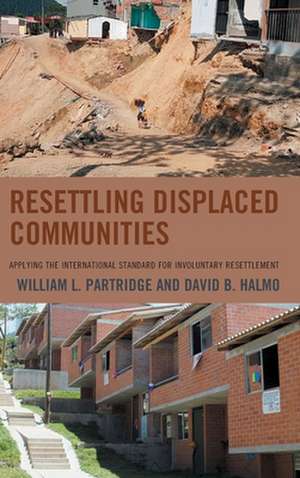Resettling Displaced Communities: Crossing Borders in a Global World: Applying Anthropology to Migration, Displacement, and Social Change
Autor David B. Halmoen Limba Engleză Hardback – 27 oct 2020
Preț: 685.56 lei
Preț vechi: 890.34 lei
-23% Nou
Puncte Express: 1028
Preț estimativ în valută:
131.18€ • 137.31$ • 109.18£
131.18€ • 137.31$ • 109.18£
Carte tipărită la comandă
Livrare economică 31 martie-14 aprilie
Preluare comenzi: 021 569.72.76
Specificații
ISBN-13: 9781793624024
ISBN-10: 179362402X
Pagini: 226
Dimensiuni: 152 x 229 x 24 mm
Greutate: 0.51 kg
Editura: Rowman & Littlefield
Seria Crossing Borders in a Global World: Applying Anthropology to Migration, Displacement, and Social Change
ISBN-10: 179362402X
Pagini: 226
Dimensiuni: 152 x 229 x 24 mm
Greutate: 0.51 kg
Editura: Rowman & Littlefield
Seria Crossing Borders in a Global World: Applying Anthropology to Migration, Displacement, and Social Change
Notă biografică
Descriere
The goal of resettlement must be the sustainable social, economic and human development of displaced communities. The provisions and directives entailed in resettlement policies and current performance standards constitute the I.S.I.R. Case examples from Asia, Africa and the Americas illustrate the praxis required for improving outcomes.








